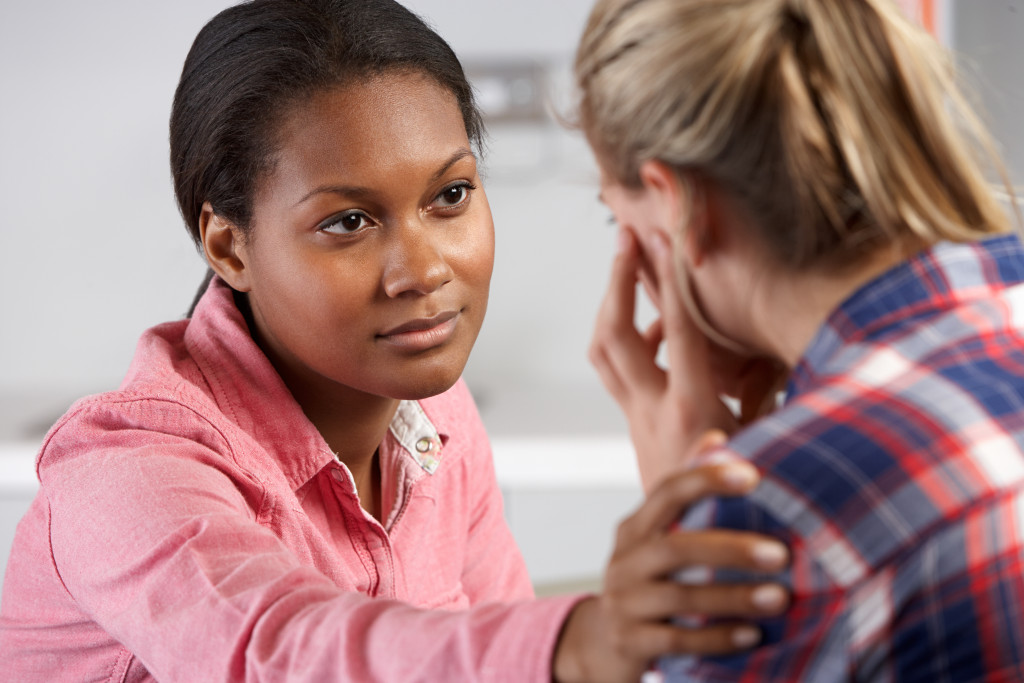We all know that it’s important to take care of our physical health. Exercise, eating healthy, and maintaining a good sleep schedule are all part of the plan for a happy body. But what about mental health? Mental illnesses can be just as destructive, but they’re often harder to identify and treat because there are so many different symptoms and triggers. The most important thing is not to ignore your mental illness or hope it goes away on its own-the sooner you start treatment, the better!
Mental Illness affects millions of people every day. It might feel like something shameful or embarrassing if you have one yourself-but in reality, it’s nothing to be ashamed about at all! Many famous people throughout history suffered from this very same thing, and they all managed to find ways to heal and recover.
In this article, we’ll be discussing some of the ways to recover from a mental illness.

Talk to a professional
When you’re struggling with a mental illness, it’s often helpful to talk to a professional. They can help you identify the source of your problem and give you some tools to start recovering. There are many different types of professionals who can help, such as psychiatrists, psychologists, counselors, and social workers.
It’s critical to find the right mental health professional and the appropriate service. Those with eating disorders need an intensive outpatient program, while those dealing with drug addiction, bipolar disorder, or major depressive disorder might need medication.
Many people are hesitant to see a professional because they’re worried about the cost. However, many insurance companies will cover part or all of the cost of therapy. You can also check with your local government or community organizations for help with paying for mental health care.
Know your triggers and learn how to cope with them accordingly
Mental illnesses can be debilitating and destructive, but with the right treatment plan, you can start to recover. One of the most important parts of recovering from a mental illness is learning about your triggers and how to cope with them accordingly.
Each person’s triggers will be different, so it’s important to learn as much as you can about yours. This might include keeping a journal, talking to a therapist, or talking to friends and family members who know you well.
If you know what your triggers are, it’ll be easier to avoid them or deal with them when they happen. For example, if you know that being around large groups of people makes you feel anxious, try to avoid crowded places whenever possible. If you know that feeling stressed out triggers your panic attacks, try to find ways to relax and de-stress throughout the day.
Learn more about your condition and the available treatments
Once you’ve started therapy, it’s important to learn as much as you can about your condition. The more you know, the better equipped you’ll be to manage your illness. There are many different types of mental illnesses, and each one requires a different treatment plan.
It can be helpful to read books or articles about your condition or to talk to other people who are struggling with the same thing. There are also many websites and online support groups where you can find information and advice.
Take your medications as prescribed
When you’re taking medication for a mental illness, it’s important to take them as prescribed. This means taking them at the same time every day and not skipping doses.
It’s also important to be honest with your doctor about how you’re feeling. If you’re not getting better, or if you’re experiencing side effects, let your doctor know. They might need to adjust your medication or dosage.
Don’t stop taking your medication without talking to your doctor first! It’s very dangerous to stop taking medications suddenly, and it can often lead to a relapse.
Self-care
One of the most important things you can do to manage your mental illness is to practice self-care. This means taking care of yourself both physically and emotionally.
Some things you can do to practice self-care include:
-Exercising regularly
-Eating a healthy diet
-Getting enough sleep
– Practicing relaxation techniques such as yoga or meditation
– Spending time with friends and family
– Doing things you enjoy
Final Thoughts
Mental illness can be tough to deal with, but don’t forget that you’re not alone. There are many people who understand what you’re going through and are willing to help. Don’t be afraid to ask for help when you need it!
